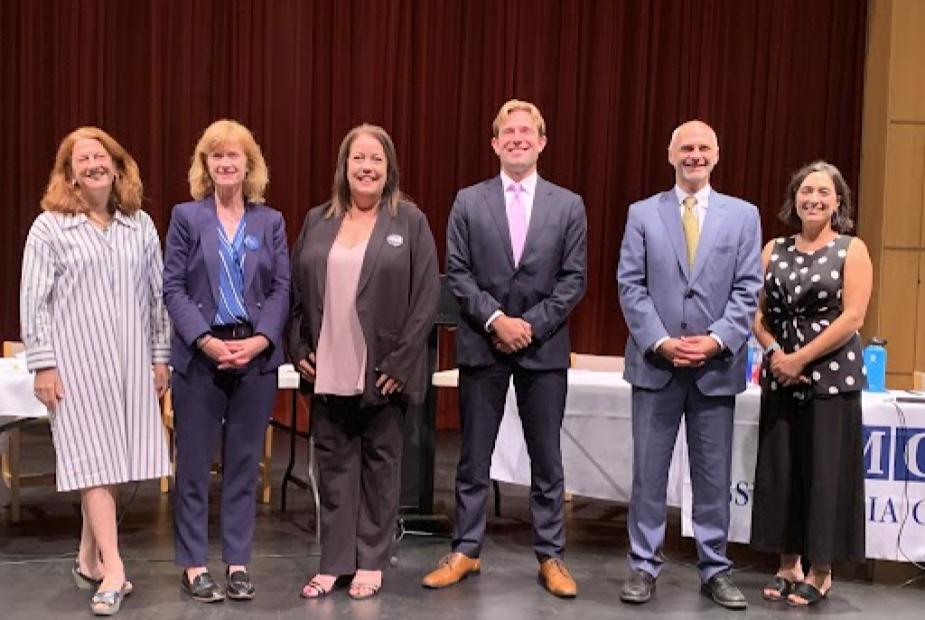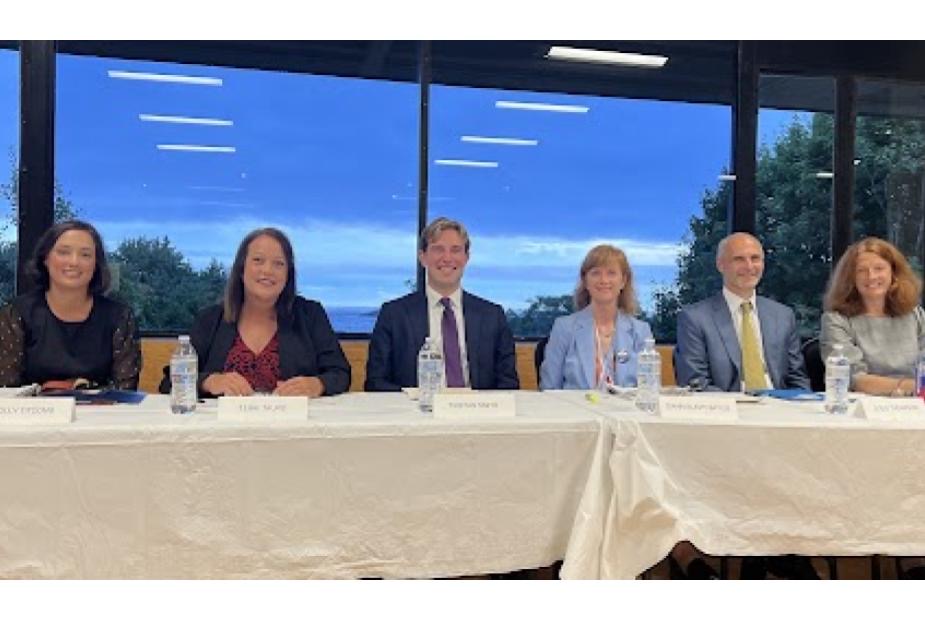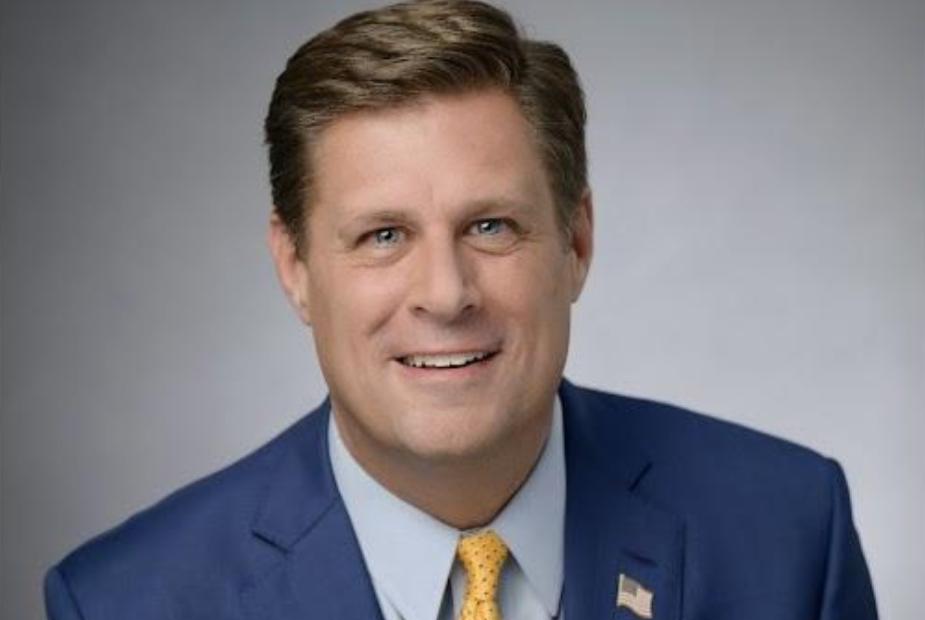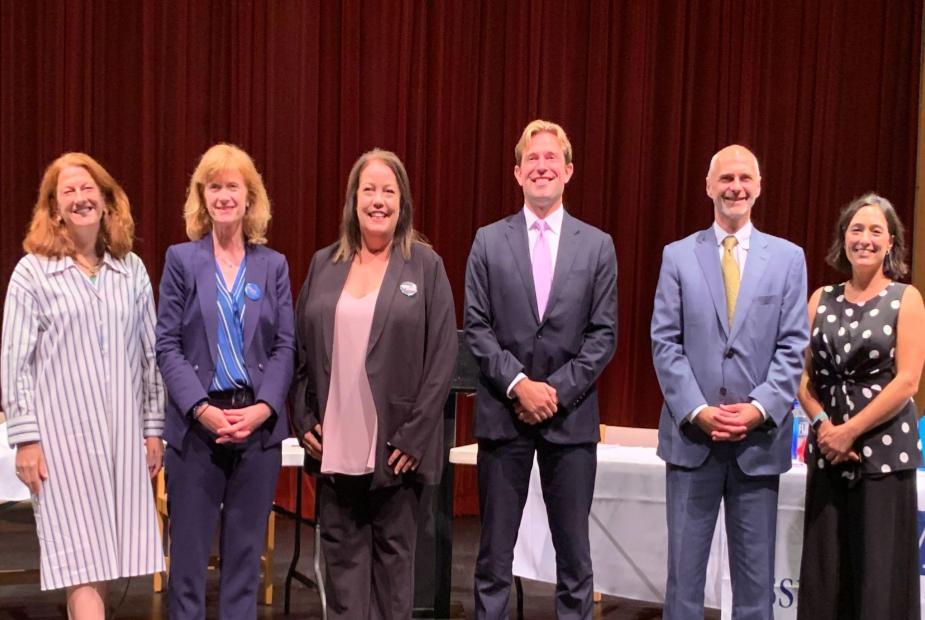State Rep Candidates Complete Last Two Forums of Primary Season
In what were the final two forums of the primary election season, the six candidates for the 8th Essex District’s state representative race appeared at a Marblehead Jewish Community Center (JCC) forum last week, and at a Marblehead High School (MHS) forum on Monday sponsored by the Lynn Item and Marblehead Weekly News.
JCC Forum
The format of the JCC forum allowed for each candidate to give opening and closing remarks with the moderator–Marty Schneer, the Executive Director of the JCC of the North Shore–asking six questions that each candidate had to answer. The forum lasted 90 minutes.
The six questions included some topics that had been largely covered in past forums, including the environment and mass transit, but also more unique questions related to the boycott, divest, and sanction (BDS) movement with regard to Israel, how to best spend the state surplus, and the advisability of parent input in public school curricula.
Parent Input in Education
The moderator asked whether parent input into education, including curricula, was appropriate, particularly in light of declining enrollment.
“As a former public school teacher,” and “as a track coach as St. Mary’s in Lynn,” Smith said, “parent input leads to a very slippery slope and I think it’s important that we’re ensuring that we have a curriculum that reflects the values that we want to see in our society.”
Armini had a similar perspective, stating that “parents are not educators in a public school setting,” and that “when we enroll our kids we are enrolling them in a curriculum developed by educators. I’m fine with parents expressing their views but they don’t have veto power over what happens in the classroom.”
Surplus Due Back to Taxpayers
Regarding the state surplus of roughly $2.5 billion due to be returned to the taxpayers under Massachusetts’s 62F law, Doug Thompson said, “If we do make any amendments it needs to go through an extremely thorough public vetting process; not a traditional middle of the night with a 300 page bill that no one sees.”
Some other candidates spoke of ways they would spend the surplus due back to Massachusetts residents. Slavit Baylis spoke of doing so on education, and Smith on transportation. Tauro said, “the law is the law,” with respect to the legal requirement that this year’s surplus is required to be sent back to the taxpayers. Nevertheless, she would like to see other surplus funds go to support seniors.
Healthcare
With respect to health care, each candidate spoke about the need to reform healthcare to make things more affordable, with Armini and Smith noting that single-payer healthcare should be the goal. Smith said, “‘I know I’m the young guy up here; I’m the progressive and I’m saying single-payer socialized medicine, but the fact of the matter is, folks, that’s exactly why I’m running. I’m not afraid of big ideas.”
“Patients need to take priority over profits,” said Armini.
“Mass Health is 40 percent of our state budget,” said Doug Thompson, noting that of utmost importance are primary care and mental health investments in addition to prescription drug price regulation.
"Boycott, Divest, and Sanction" Israel Legislation
Some 35 states have enacted orders or legislation that discourage the support of BDS, noted the moderator, and then asked whether the candidates would support such legislation.
Smith said he does not support the BDS movement. “I think when we’re talking boycotting, divestment, and sanctions, we’re not hurting Israel; we’re hurting the Israeli people.”
Armini, who said she would support anti-BDS legislation, distinguished herself by pointing to her experience standing at the Golan Heights and visiting the West Bank, and working with the American Israel Public Affairs Committee (AIPAC) after congressional-aide experience handling Israel-related matters.
Titcomb, who initially expressed confusion about the question and said she would not support anti-BDS legislation, circled back to clarify in her closing statement. “It matters a lot to me to be really accurate when I give the answer of such absolute critical importance,” she said, adding, “I apologize for being confused by the question and not knowing the appropriate way to answer it but I trust that you know that I care a lot and no one should be discriminated against and we need to protect people against such behavior.”
Thompson said it was “a tricky question,” noting that the relationship between Israel and its neighbors is long-standing, and that the anti-BDS legislation “is not an issue one can talk in generalities about,” and that he would have to see specific legislation to make a decision.
Slavit Baylis said, “I want to see the balance of free speech versus the boycott on Israel. I’m ready to be a state legislator; I’m not holding myself out as a foreign policy specialist, but I view Israel as our most important ally in the Middle East and we need to support democracies in the Middle East because our Democracy is at risk right now.”
“Israel has every right to exist,” said Tauro, who noted that it is the only country in the region to recognize the rights of women. She does not support blanket legislation that would restrict the right to boycott, but does support modified legislation that would help protect people against anti-semitism.
MHS Forum

Monday’s MHS forum’s style was a departure from prior forums in which only a moderator asked the candidates questions. Each candidate was allowed an opening and a closing statement, and the moderator–Thor Jourgensen of the Lynn Item and Marblehead Weekly News–asked each a question only intended for that one candidate. But what stood apart was that each candidate had the opportunity to ask another candidate a question. The forum lasted one hour.
Titcomb v. Smith
Polly Titcomb directed her allotted question to Tristan Smith, asking him what personal or professional experience he has had “reviewing and amending annual budgets, prioritizing capital and operating needs, weighing competing interests, and negotiating conflicting priorities” that would help him fulfill the role of managing the $5.3 billion budget the legislature approved.
Smith’s answer included references to being a lifelong Democrat, and noted his experience as the student representative to Swampscott’s School Committee and his time “as a teacher in our public schools.” He also referenced “unparalleled constituent experience” and noted his being an elected member of town meeting (to which he was elected in April, according to town records), where people review budgets. Smith added that he’d “stood on the commuter rail platform” for trains that didn’t come on time and “seen storm surges caused by climate change.”
Thompson v. Slavit Baylis
Doug Thompson’s question was to Dianne Slavit Baylis, and he asked her about how she would bring down healthcare costs, particularly for seniors. Slavit Baylis spoke about the importance of affordability and oversight of healthcare costs, and how much she’d like to “get our nurses back” by offering incentives and loan forgiveness.
Tauro v. Slavit Baylis
Another question came Slavit Baylis’s way from Terri Tauro, who asked her why she wanted to run to represent the district when she’d “only lived here for, I think, less than a year.” Slavit Baylis talked of being a coalition builder. She noted that her husband had connections to Marblehead, where he played basketball and tennis as a youngster, and added that her father had been the harbormaster [in Haverhill], and as a child she’d been on his boat to this area.
Smith v. Titcomb
Smith’s question was for Titcomb, and he asked her–in light of her being passionate about the difficulties of campaigning as a single mother–what reforms people could get behind to make things easier for people running for public office. Titcomb made it clear that her issues in that regard come with the caveat that while she is indeed divorced, she has an active co-parent and therefore does not have to parent her young children alone. “There are barriers that I’m very vocal about,” she said with respect to “the amount of juggling” involved. In spite of that, she said, “I’m still here. That is the larger point.” Titcomb pointed out that allowing for campaign funds to be utilized for child care would reduce barriers to entry into politics and bring in much needed “diverse voices.”
Slavit Baylis v. Thompson
Thompson took some heat from Slavit Baylis when she asked him about the $41,000 he’d contributed and loaned to his own campaign. “That’s more than some of us have spent in total,” she noted, going on to ask him why he waited until two weeks prior to the election to report those receipts. After making a seemingly joking remark about being “really surprised” she’d asked him that, he went on to respond that she was factually incorrect. “Much of this was reported long ago,” and “the rest was reported early.” Thompson was referring to the deadlines of the Office of Campaign and Political Finance, to which he’d reported some July contributions later than his opponents but before the deadline. “It’s important to me to do this right,” he said about the costs of campaigning, but also shared that he’d self funded in part because he did not wish to be beholden to special interests, an apparent dig at Smith, who is the only one of the six to accept campaign contributions from lobbyists. He also noted that he’d support public financing of campaigns.
Armini v. Thompson
Armini’s question was for Thompson, and she echoed a question that Tauro had asked Slavit Baylis. “You’ve been in the district roughly three years without what I see as deep community activism.” She went on to state that most of his contributions come from outside the district, as opposed to hers, she said, that have mostly been from in the district. “How can you represent us without community relationships that drive legislation, advocacy, and–importantly–case work.” Thompson again made an “I’m shocked” remark before answering the question and suggesting that the premise was false. “I’ve been deeply immersed in this community since moving here; I’ve been deeply immersed in this community long before I moved here.” Among other things, Thompson used examples of his work with Neighborhood Health Plan and his role as Chief Financial Officer for Medicaid of Massachusetts to underscore his work in this area.
Moderator Asks Questions
Jourgensen rounded out the forum by asking each candidate one question.
Armini appeared to misunderstand or not fully hear a question about bus lanes on the Lynnway, thinking she was being asked about bike lanes. She stated that, “when we add a bike lane or we add a ferry, we’re creating an opportunity for people to make different choices, and those choices will be far better for our environment in the long term.”
Slavit Baylis, asked about returning tax surpluses to voters, was unsure about whether she’d agree with the legislature on tax relief. “I haven't made my decision on this. I feel like the law is the law. If it’s something we need to revisit later, we need to revisit. I really think that people in this state deserve some type of tax relief.”
Smith was aked about providing licenses to undocumented immigrants and was firm in his support, stating that “I will oppose any efforts to repeal it.” He went on to say that, “there is a social justice element to all of this; undocumented immigrants are our neighbors, our friends; they’re people we work with and see every day; our teachers; they need a way to get to work.” He referenced a bill named “Driving Families Forward,” and said, “it’s about giving people the ability to get around, because transportation is so much more than going from Point A to Point B when Point A is childcare and Point B is your job.”
Tauro was asked about MBTA reform. “We can all agree the MBTA is not working up to its potential,” said Tauro, to audience laughter. “I would push for the MBTA to be more controlled by the state,” she added, noting that it needs to be electrified because “it’s belching out carbon emissions right now.”
Asked about Proposition 2 ½, Thompson said, “this law was passed a long time ago after a big fight.” The law limits the amount of money a municipality can raise through property taxes without an override vote. “I would definitely think that we should look at changing Prop 2 ½; we need much more progressive taxation in Massachusetts in general.” He acknowledged that it would have to be a “very long, complicated process to be able to make a big shift in the culture here in Massachusetts.”
Titcomb, asked about legislators’ time in session and pay rate, said, “Yes, I do think it’s time for the legislature to become a full-time job and operate in the equivalent of a formal session year-round. The pay structure would certainly have to change,” she added, noting that “it splits the legislators' interests” to have some working other jobs while legislating. She also noted that apart from issues like climate change and public transportation, “long-term structural deficiencies” must be addressed because they underlie “discriminatory legislative practices” in Massachusetts. To remedy them, according to Titcomb, legislators must do more than drive policy and advocate for things that are economically neutral, racially neutral, or socially neutral; “we have to have legislators who are anti-economic injustice and create legislation on the basis of that anti-injustice attitude.”
Final Thoughts
Wrapping up their final forum appeared to be a big relief for most candidates, with fewer anxious looks and more smiles in the MHS auditorium. “It was great fun,” said Tauro. “I liked the format and it gave the candidates a chance to be more natural.” Smith is “excited to see what happens,” and noted that people have heard the six candidates’ pitch and some have started to vote.” Armini was blunt. “I am relieved that this is the last forum,” she said, adding that now that people are returning from vacation and kids are going back to school, there is great engagement on the campaign trail. While Titcomb was relieved to have the last forum behind her, she enjoyed the “different, interesting, and substantive questions” of the evening. Thompson said, “I’m going to miss [the forums],” noting that they were “a great exchange of ideas.” “These forums were great for the voters, as they provided an opportunity for the candidates to distinguish ourselves from one another, both in terms of our background and priorities, but also in our commitment to transparency and reforms,” said Slavit Baylis.
Editor’s Note: The author of this story, Lena Robinson, and her family have been close to one of the candidates–Jenny Armini–and her family, for more than 25 years. Robinson’s husband, Dwight Robson, has donated to Armini's campaign. Marblehead Beacon co-founder Jenn Schaeffner is on the steering committee of the group PowerUP!, on which candidate Terri Tauro serves. Prior to launching Marblehead Beacon, Schaeffner contributed to Tauro's campaign.









